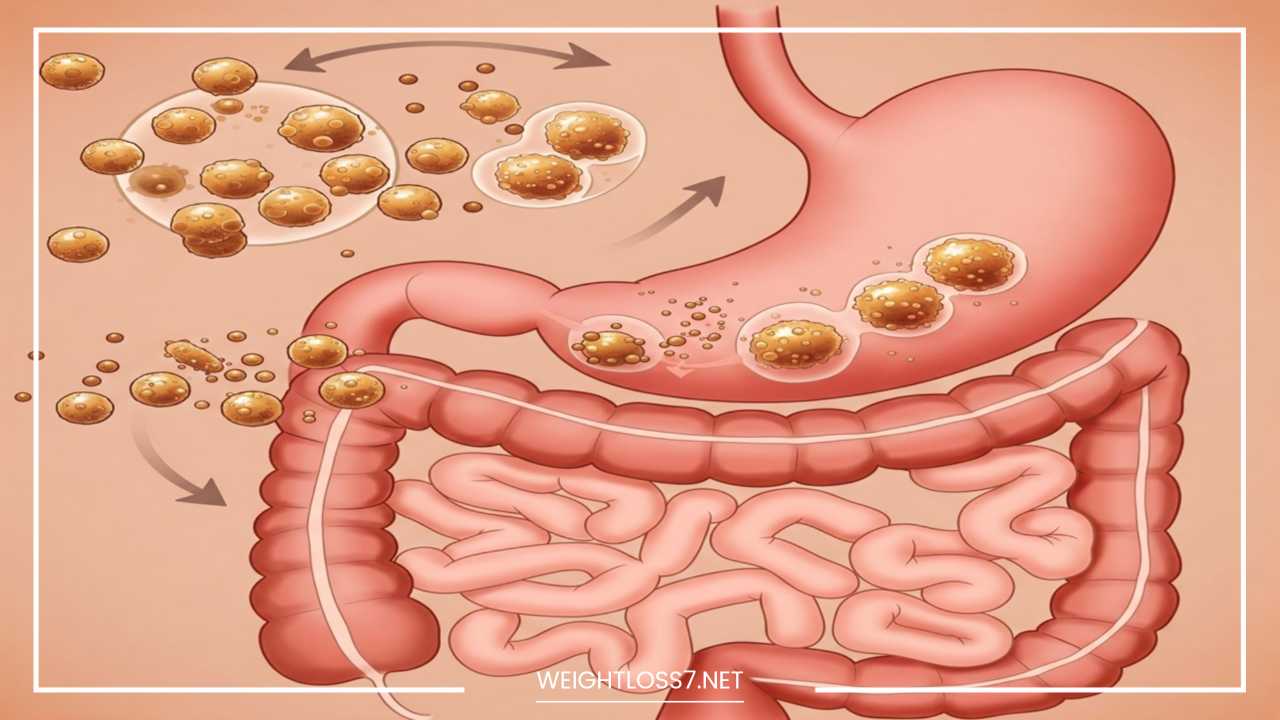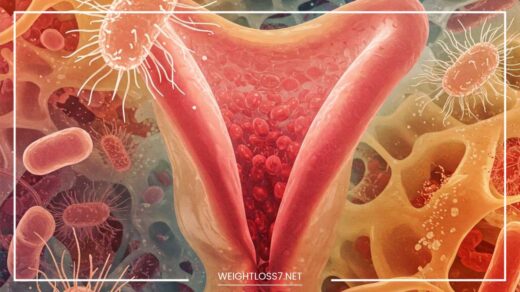Seed Probiotics: The Future of Gut Health

Seed Probiotics
Seed Probiotics: Cultivating a Resilient Gut Microbiome from the Ground Up
The landscape of gut health is constantly evolving, with ongoing research revealing the intricate connection between our internal microbial ecosystem and overall well-being.
For years, traditional probiotics, teeming with live and active cultures, have been the go-to for those seeking to bolster their gut flora.
However, a new generation of probiotics is emerging, promising enhanced efficacy and resilience: seed probiotics.
These aren’t your typical refrigerated capsules. Seed probiotics, also known as spore-forming probiotics, represent a paradigm shift in how we approach gut health.
Instead of delivering fragile live bacteria, they deliver hardy bacterial spores – akin to seeds waiting for the right conditions to germinate and flourish.
This fundamental difference offers a compelling array of advantages, making seed probiotics a promising tool for cultivating a robust and balanced gut microbiome.
Understanding the Core Difference: Spores vs. Live Cultures
To truly appreciate the innovation of seed probiotics, it’s crucial to understand the distinction between spore-forming bacteria and the live, active cultures found in traditional probiotics.
Traditional probiotics primarily consist of vegetative bacteria, meaning they are in their active growth phase.
While beneficial, these bacteria are inherently vulnerable to the harsh environment of the digestive tract.
Stomach acid, bile salts, and digestive enzymes can significantly reduce their survival rate, meaning a substantial portion of the ingested bacteria may not even reach the intestines where they are needed most.
Furthermore, these live cultures often require specific storage conditions, such as refrigeration, to maintain their viability.
Seed probiotics, on the other hand, contain bacteria in their dormant, spore form. This spore is a naturally protective shell that shields the bacteria from environmental stressors, including extreme temperatures, stomach acid, and even antibiotics.
Think of it like a seed waiting for the perfect conditions – warmth, moisture, and nutrients – to sprout.
Once these spores reach the more neutral and nutrient-rich environment of the small and large intestines, they germinate, shedding their protective coating and transitioning into their active, vegetative form, ready to colonize and exert their beneficial effects.
The Journey of Spores in the Digestive System
The journey of seed probiotics through the digestive tract can be visualized as a daring expedition. As spores make their way through the stomach, they encounter the highly acidic environment that typically destroys most other probiotic strains.
However, thanks to their tough outer coating, these spores are highly resistant to stomach acid. Once the spores arrive in the small intestine, where the pH is much more neutral and favorable for bacterial growth, they begin to “wake up” from their dormant state.
At this point, the spores absorb nutrients, shed their protective shell, and begin to actively multiply. This transformation from dormant spore to active bacteria is essential to their functionality in the gut.
Once in their vegetative form, these bacteria are fully capable of interacting with the gut lining, producing beneficial metabolites, and performing the myriad of health-promoting functions that probiotics are known for, such as improving digestion and modulating immune function.
The Science Behind the Spore: Nature’s Protective Mechanism
The ability of certain bacteria to form spores is a remarkable evolutionary adaptation. This process, known as sporulation, allows bacteria to survive unfavorable conditions that would otherwise lead to their demise.
The spore itself is a complex structure composed of multiple layers, including a tough outer coat, a cortex, and the core containing the bacterial DNA and essential cellular machinery.
This robust structure provides several key advantages for probiotic delivery:
- Resistance to Stomach Acid: The highly acidic environment of the stomach (pH 1.5-3.5) is a major barrier for most live bacteria. The spore’s protective layers effectively shield the genetic material and internal components from this harsh acidity, allowing a significantly higher percentage of the bacteria to survive the journey to the intestines.
- Tolerance to Bile Salts and Digestive Enzymes: Bile salts, produced by the liver to aid in fat digestion, and various digestive enzymes can also damage or inactivate live bacteria. The spore form offers resistance to these compounds, ensuring the bacteria remain viable until they reach their target destination.
- Stability at Room Temperature: Unlike many traditional probiotics that require refrigeration to maintain their potency, seed probiotics are generally stable at room temperature. This makes them more convenient for storage and travel, eliminating concerns about temperature fluctuations compromising their effectiveness.
- Potential Resistance to Certain Antibiotics: While not all spore-forming bacteria are resistant to all antibiotics, some species exhibit a degree of resistance in their spore form. This is a significant advantage, as antibiotic use can often disrupt the gut microbiome, leading to dysbiosis. Seed probiotics taken alongside or after antibiotics may help to mitigate this negative impact by introducing beneficial bacteria that can survive the antibiotic treatment in their dormant state.
The Microbial Resilience of Spores
One of the most fascinating aspects of seed probiotics is the extraordinary resilience of their spores. Unlike vegetative bacteria that are highly sensitive to environmental factors like heat, oxygen, and moisture, spores are among the most durable biological entities on Earth.
Some spores have been known to survive for millions of years, even in extreme environments like the frozen tundra or high radiation zones.
This resilience is what makes spore-forming probiotics so promising. They not only survive their journey through the digestive tract, but they also possess the ability to thrive once they reach their intended destination: the gut.
Key Players in the Seed Probiotic Arena: Common Spore-Forming Bacteria
While the concept of seed probiotics is relatively new to the consumer market, the bacteria themselves have been studied for decades.
Several species of spore-forming bacteria are commonly found in seed probiotic formulations, each with its own unique characteristics and potential health benefits:
- Bacillus subtilis: This is one of the most well-studied spore-forming bacteria. It is known for its ability to produce various enzymes that aid in digestion and nutrient absorption. Bacillus subtilis has also been shown to support immune function and may help to inhibit the growth of harmful bacteria.
- Bacillus coagulans: Previously known as Lactobacillus sporogenes (mistakenly classified as a lactic acid bacterium), Bacillus coagulans is a facultative anaerobe, meaning it can survive in both the presence and absence of oxygen. It produces lactic acid and has been shown to be effective in alleviating symptoms of irritable bowel syndrome (IBS) and other digestive disorders.
- Bacillus clausii: This species is known for its high resistance to antibiotics and is often used in pharmaceutical preparations to restore gut flora during or after antibiotic treatment. Bacillus clausii exists in several different strains, each with slightly different properties.
- Bacillus indicus: This unique spore-forming bacterium is known for its ability to produce carotenoids, powerful antioxidants that can contribute to overall health and well-being.
- Bacillus licheniformis: This species is known for its production of various enzymes, including proteases and amylases, which can aid in the breakdown of proteins and carbohydrates. It has also been investigated for its potential role in supporting immune function.
The Advantages of Choosing Seed Probiotics: Beyond Survival
The superior survival rate of seed probiotics is a significant advantage, but it’s not the only reason why they are gaining popularity. Here are some other key benefits:
- Targeted Delivery: The ability of spores to withstand the harsh upper digestive tract allows for more targeted delivery of beneficial bacteria to the small and large intestines, where they can exert their effects more effectively.
- Enhanced Colonization: Once the spores germinate in the intestines, they can actively colonize the gut lining, contributing to a more stable and diverse microbiome. The gut microbiome is not static – it requires constant support and balance, and spore-forming probiotics help maintain this equilibrium.
- Shelf-Stability: The inherent stability of spores at room temperature eliminates the need for refrigeration, making seed probiotics more convenient for consumers and reducing the risk of product degradation during shipping and storage.
- Potential for Broader Applications: The robustness of spore-forming bacteria opens up possibilities for incorporating them into a wider range of food products and delivery formats where traditional live cultures might not survive. This includes use in fortifying functional foods, snacks, and beverages.
Unlocking the Potential Health Benefits: What Research Suggests
While research on seed probiotics is still evolving, emerging evidence suggests they may offer a range of health benefits, similar to and in some cases potentially exceeding those of traditional probiotics:
- Improved Digestion: Certain spore-forming bacteria, like Bacillus coagulans, have shown promise in alleviating symptoms of digestive discomfort, including bloating, gas, and abdominal pain associated with IBS. They can also aid in the digestion of food and the absorption of nutrients.
- Enhanced Immune Function: The gut microbiome plays a crucial role in regulating the immune system. Some spore-forming bacteria, such as Bacillus subtilis, have been shown to stimulate the production of immune cells and enhance the body’s defense against pathogens.
- Reduced Inflammation: Chronic inflammation is linked to a wide range of health problems. Certain spore-forming bacteria may help to modulate the inflammatory response in the gut and throughout the body. Reducing systemic inflammation can lead to improvements in conditions like arthritis, cardiovascular disease, and even mental health.
- Support for Gut Barrier Integrity: A healthy gut barrier is essential for preventing the leakage of harmful substances into the bloodstream. Some studies suggest that spore-forming probiotics can help to strengthen the gut barrier and reduce intestinal permeability. This is crucial for preventing conditions like leaky gut syndrome, which has been linked to a variety of autoimmune diseases.
- Potential Impact on Specific Conditions: Preliminary research suggests that seed probiotics may have a role to play in managing certain conditions, such as small intestinal bacterial overgrowth (SIBO), antibiotic-associated diarrhea, and even allergies, although more research is needed in these areas.
Who Can Benefit from Embracing Seed Probiotics?
Given their unique properties and potential benefits, seed probiotics may be particularly beneficial for certain individuals:
- Individuals with Digestive Issues: Those experiencing symptoms of IBS, bloating, gas, or other digestive discomfort may find relief with seed probiotics, particularly strains like Bacillus coagulans.
- Travelers: The room-temperature stability of seed probiotics makes them an ideal travel companion for maintaining gut health while on the go, especially in environments where food and water quality may be a concern.
- Those Taking Antibiotics: Seed probiotics, particularly those containing Bacillus clausii, may help to restore the gut microbiome after or during antibiotic treatment. Antibiotics are notorious for disrupting gut health, so introducing seed probiotics may aid in repopulating the
gut with beneficial bacteria.
- Individuals Seeking Overall Gut Health Support: Even those without specific digestive issues can benefit from the introduction of beneficial spore-forming bacteria to support a healthy and balanced gut microbiome.
- Those Looking for a More Convenient Probiotic Option: The lack of refrigeration requirements makes seed probiotics a convenient choice for individuals with busy lifestyles.
Navigating the Seed Probiotic Landscape: Choosing the Right Product
As the popularity of seed probiotics grows, so does the number of available products. Here are some factors to consider when choosing a seed probiotic supplement:
- Strain Diversity and Specificity: Look for products that contain a variety of well-researched spore-forming strains. Consider your specific health needs and choose strains that have been shown to address those concerns.
- CFU Count: Colony-forming units (CFUs) indicate the number of live and active bacteria (or in this case, viable spores) per serving. While a higher CFU count isn’t always better, ensure the product provides a clinically relevant dose.
- Third-Party Testing: Opt for products that have undergone third-party testing for purity, potency, and the absence of harmful contaminants. This ensures you are getting a high-quality product.
- Other Ingredients: Pay attention to any other ingredients in the formulation, such as prebiotics (which can help to nourish the beneficial bacteria) or potential allergens.
- Reputable Brands: Choose products from reputable manufacturers with a history of producing high-quality supplements.
Incorporating Seed Probiotics into Your Daily Routine
Integrating seed probiotics into your daily routine is generally straightforward. Most supplements come in capsule form and can be taken with water, with or without food.
Follow the dosage instructions provided on the product label. Consistency is key when it comes to supporting your gut health, so aim to take your seed probiotic supplement regularly.
Potential Side Effects and Precautions
While generally considered safe for most individuals, some people may experience mild and temporary side effects when first starting seed probiotics, such as gas or bloating. These symptoms usually subside as the body adjusts.
It’s always advisable to consult with your healthcare provider before starting any new supplement, including seed probiotics, especially if you have any underlying health conditions or are taking other medications.
The Future is Spore-Forming: The Promising Horizon of Seed Probiotics
The field of seed probiotics is rapidly evolving, with ongoing research exploring the full potential of these resilient microorganisms.
We can expect to see further advancements in strain identification, targeted delivery methods, and a deeper understanding of their impact on various aspects of human health.
The unique advantages of seed probiotics – their ability to survive the harsh digestive environment, their room-temperature stability, and their potential for enhanced colonization – position them as a significant player in the future of gut health.
As our understanding of the gut microbiome continues to grow, seed probiotics offer a promising and effective way to cultivate a resilient and thriving internal ecosystem, ultimately contributing to improved overall well-being.
Final Thoughts: Planting the Seeds for a Healthier Gut
Seed probiotics represent a significant step forward in our approach to gut health. By harnessing the natural resilience of spore-forming bacteria, these innovative supplements offer a more robust and convenient way to support a balanced and thriving gut microbiome.
From their superior survival rates to their potential for targeted delivery and diverse health benefits, seed probiotics are proving to be a valuable tool for individuals seeking to optimize their digestive health, bolster their immune system, and cultivate a foundation for long-term well-being.
As research continues to unveil their full potential, seed probiotics are poised to play an increasingly important role in the ever-evolving landscape of gut health and personalized wellness.

















